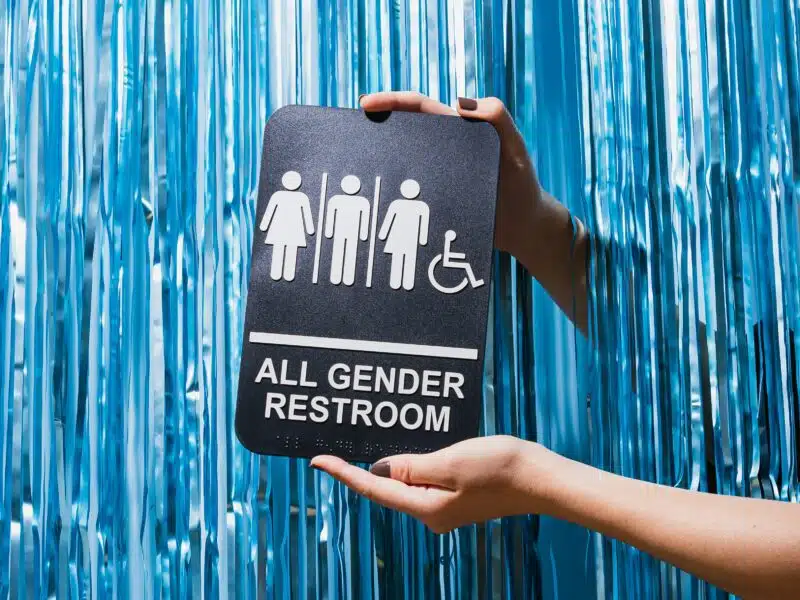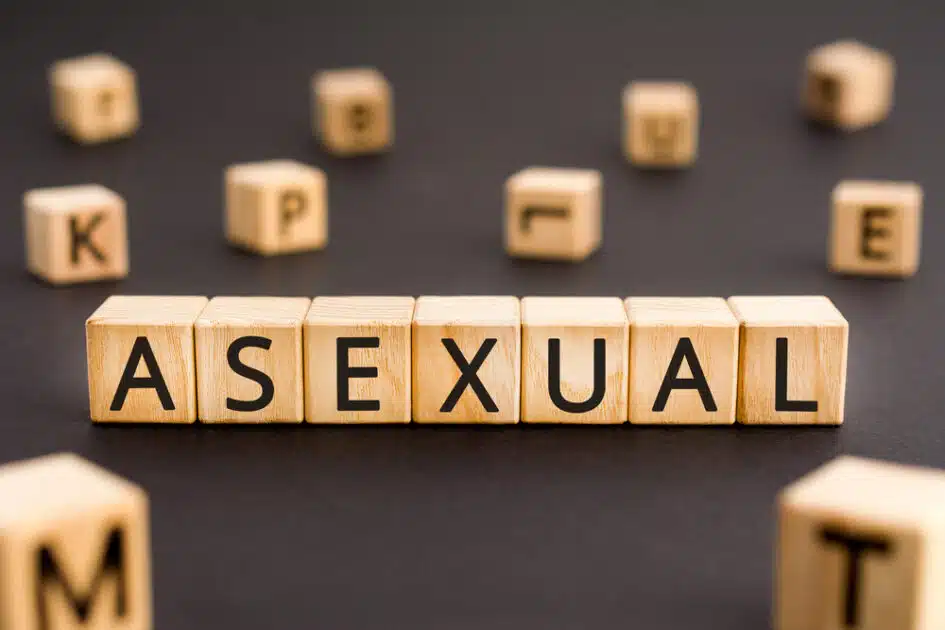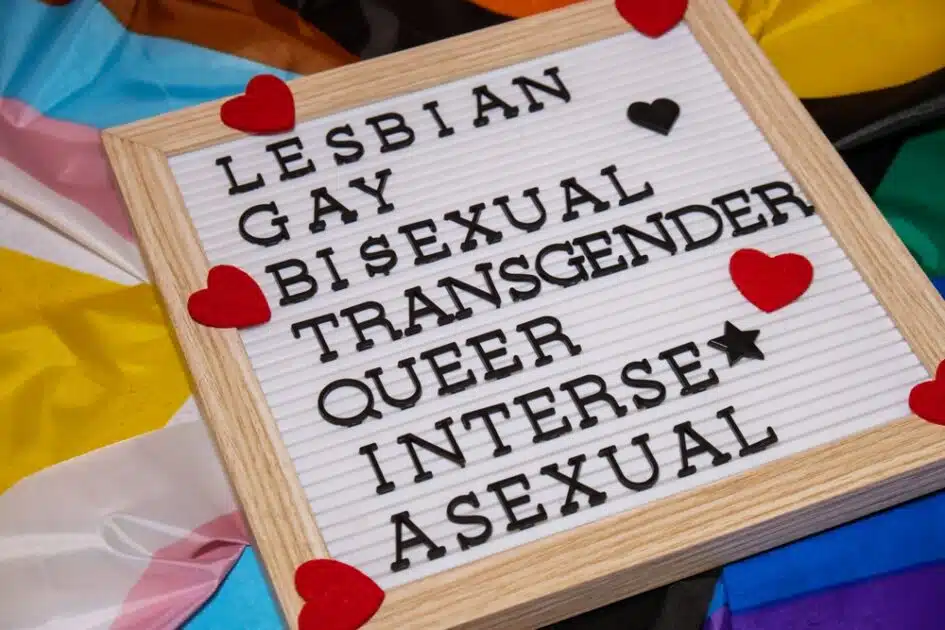Asexuality: Things You Need to Know (Updated 2024)

A short guide to asexuality and the myths and misconceptions surrounding it.
Sexuality (Updated 2024) 08th Jun, 2023
If you find yourself floating in the unknown waters of asexuality, wondering if you might belong to the “ace” community, or simply looking for a compact introduction to the subject, you’ve landed at the right place. First and foremost, it’s crucial to comprehend that asexuality is a vast canvas painted with diverse individual experiences. The keyword here is a spectrum.

You could be pondering over your own sexual identity or exploring asexuality to understand a loved one better. Remember, the process of understanding sexuality requires personal interpretation, and the boundaries of definition are fluid.
Let’s dive into the depths of this ocean, navigating the terms and debunking myths along the way.
The “Ace” Spectrum: Understanding Asexuality
The LGBTQIA+ community lovingly folds asexual and aromantic people into the “ace” category. This realm is rich with variety, and here are some terms you might come across:
- Asexual: Individuals who do not experience sexual attraction.
- Grey-asexual: Those who experience sexual interest rarely or under specific circumstances.
- Demisexual: People who develop sexual attraction only after forming a strong emotional bond.
- Aromantic: Individuals who do not experience romantic attraction.
- Grey-romantic: Those who rarely experience romantic attraction.
- Demiromantic: People who feel romantic attraction only after developing an emotional bond.
- Sex-repulsed: Individuals who find the idea of sex off-putting.

Busting Common Misconceptions About Asexuality
Society generally views relationships through the lens of romantic and sexual attraction. However, friendship is just as significant, especially for someone who identifies as asexual.
Asexual individuals may not experience sexual and romantic attraction simultaneously, similar to some bisexual individuals.
Thus, it’s not uncommon for people identifying as “ace” to exhibit a mix of the identities listed above. For instance, one might be asexual and demiromantic, experiencing romantic but not sexual attraction toward others.
Also, it’s a myth to believe that all asexual individuals avoid relationships. An ace person might not experience romantic attraction but could be sexually interested in someone with whom they share a deep emotional bond.
And importantly, isn’t celibacy? Celibacy is a chosen path, unlike asexuality, which is a lack of sexual attraction.
Recommendation: LGBT Culture
The Concept of Asexuality
As you delve into the world of asexuality, colloquially known as the “ace” spectrum, or simply seek a concise primer on the topic, you’ve reached the right destination. First off, it’s key to grasp that is a broad spectrum encompassing a multitude of unique experiences.
Whether you’re deciphering your own sexual identity or striving to comprehend a loved one’s asexuality, it’s essential to remember that defining these terms involves personal interpretation. The boundaries are inherently flexible.
The Absence of Sexual Attraction
Asexual people who don’t experience any sexual attraction can still experience other forms of attraction.
Aside from sexual attraction, you can also experience:
- Romantic attraction: Wanting to be in a romantic relationship with someone
- Aesthetic attraction: liking someone for their appearance
- Feeling a connection or physical attraction: feeling like you want to touch, hold, or cuddle someone
- Emotional attraction: seeking an emotional bond with someone
- Platonic attraction: feeling like you’d enjoy being friends with someone
Asexual individuals can feel various types of attraction, along with many more.
Recognizing Asexuality as a Valid Sexual Identity
Asexuality, like heterosexuality, homosexuality, bisexuality, and other sexual orientations, holds a legitimate place in the spectrum of human sexuality.
Remember, there should never be any force or coercion to engage in sexual activities or cultivate romantic connections – the pressure should not come from yourself or others.
Affirming Your Asexual Identity
You are perfect, exactly as you are. The notion of perfection is subjective and varies from person to person. Just as there isn’t one correct color in a rainbow, there isn’t one correct way to express or experience sexuality.
Your asexuality is a part of your unique identity. It is an aspect of you, much like your interests, personality traits, and skills.
Don’t let anyone diminish your identity or make you feel less than because of your asexuality. You have every right to be proud of who you are, and it’s essential to affirm this to yourself regularly.
Embracing Your Individuality
Self-acceptance and love of oneself are crucial steps in coming to terms with one’s asexuality. Your sexual orientation does not determine your value, your capacity, or the degree of affection you merit.
Respect your uniqueness and always remind yourself that being different does not equate to being inferior.
Recommended:
Compatibility: 3 Ways To Know If You Match
The Bottom Line
Understanding the concept of asexuality isn’t just about learning definitions or debunking misconceptions; it’s about recognizing and respecting the infinite variations of human sexuality.
Each person’s experience with asexuality is unique and valid, contributing to the rich diversity of the human experience. For those identifying asexual, it’s a journey of self-discovery, self-acceptance, and self-love.
It’s about understanding that romantic or sexual attraction isn’t a mandatory aspect of a fulfilling life. A life abundant with friendship, personal accomplishments, and self-growth can be just as rewarding and fulfilling.
FAQs
What do you need to know about asexuality?
Asexuality is a sexual orientation where an individual experiences little to no sexual attraction to others.
Can asexual want to kiss?
Yes, some asexual individuals may desire or enjoy kissing, as it can be separate from sexual attraction.
Can asexuality be a choice?
No, asexuality is a natural sexual orientation, not a choice.
What Does It Mean to Be Asexual?
Being asexual means experiencing little to no sexual attraction to others, though romantic attraction and relationships can still occur.
How rare is asexual?
Estimates vary, but it’s believed that around 1% of the population identifies as asexual.
















